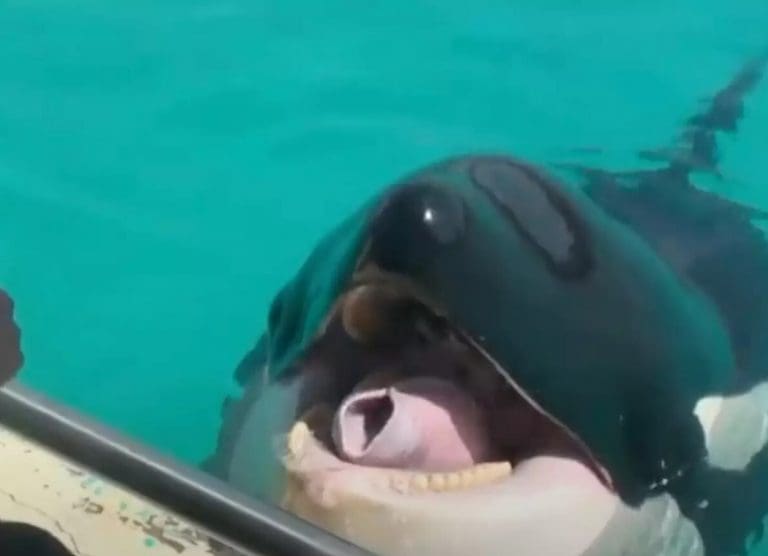Researchers have discovered that orcas can mimic human speech, and the results are both fascinating and unsettling. The study, published in 2018, involved a 14-year-old killer whale named Wikie, who was trained to imitate various sounds, including human words. Using a green laser and a black light with neon liquid, the video reveals how far these particles, including so-called “poo particles,” can travel, potentially contaminating nearby items such as toothbrushes.
In the experiment, Wikie successfully replicated a range of human sounds, such as “hello,” “Amy,” “ah ha,” “one, two,” and “bye bye.” Researchers noted that while some of the imitations sounded eerie and almost demonic, others were remarkably accurate. The ability of orcas to mimic human speech demonstrates their sophisticated vocal learning capabilities, which could shed light on the development of communication in the wild.
This discovery opens new avenues for understanding orca behavior and communication. Although Wikie’s vocal apparatus is vastly different from humans, she managed to produce sounds that closely resembled human speech. This breakthrough suggests that the dialects observed in wild orcas might be a result of vocal imitation. However, researchers emphasize that more trials are needed to determine if wild orcas exhibit similar abilities.
The implications of this research are profound, offering insights into the cognitive abilities of orcas and their potential for learning new sounds. It also raises ethical questions about the treatment of these intelligent creatures in captivity. As the study progresses, it may lead to a deeper understanding of orca communication and the complexity of their social interactions in the wild.




